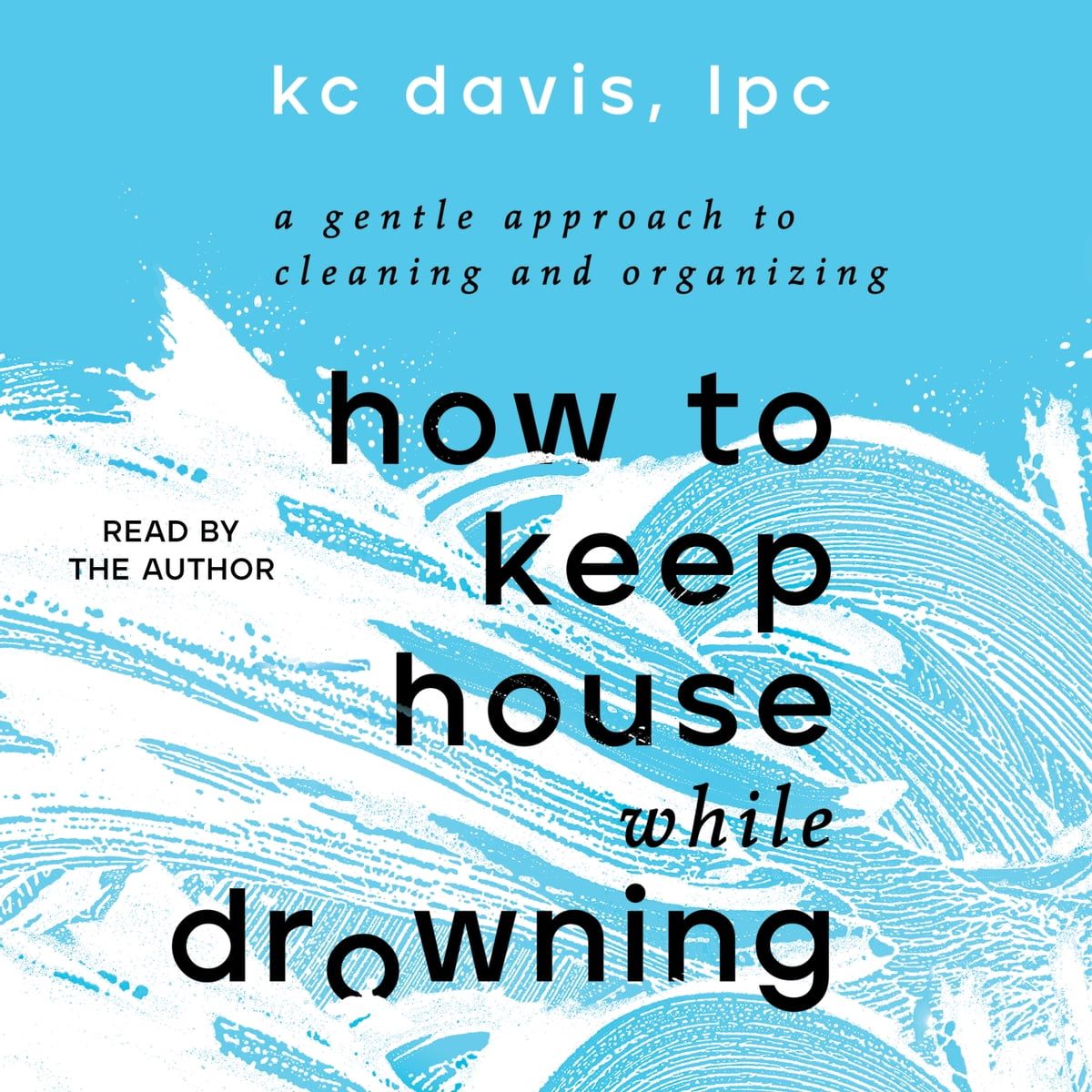Home>Production & Technology>Audiobook>What Happens If You Listen To An Audiobook While Sleeping


Audiobook
What Happens If You Listen To An Audiobook While Sleeping
Modified: January 22, 2024
Discover the power of audiobooks! Find out what happens when you listen to an audiobook while sleeping and unlock the benefits of this unique experience.
(Many of the links in this article redirect to a specific reviewed product. Your purchase of these products through affiliate links helps to generate commission for AudioLover.com, at no extra cost. Learn more)
Table of Contents
- Introduction
- The Science Behind Audiobook Listening
- Sleep and Its Importance
- The Effects of Audiobooks on Sleep Quality
- Cognitive Processing during Sleep
- Dream Formation and Audiobook Listening
- The Potential Benefits of Audiobook Listening while Sleeping
- The Potential Drawbacks of Audiobook Listening while Sleeping
- Strategies for Listening to Audiobooks during Sleep
- Conclusion
Introduction
Audiobooks have become increasingly popular in recent years as a convenient and engaging way to enjoy literature. Many people find solace in listening to their favorite books narrated by talented voice actors, immersing themselves in captivating stories and valuable knowledge. But have you ever wondered what would happen if you decided to listen to an audiobook while you were asleep? Would it have any impact on your overall sleep quality or even affect your dreams? In this article, we will explore the fascinating world of audiobook listening while sleeping and delve into the science behind it.
Sleep is a vital component of our daily lives, supporting the restoration of both our physical and mental well-being. It is during sleep that our bodies repair themselves, and our brains process and consolidate the information we have acquired during the day. Audiobook listening, on the other hand, is a popular activity that allows us to engage with literature and expand our knowledge even when our eyes are closed. Combining these two activities may seem intriguing, but it raises questions about the possible effects on our sleep quality and dreams.
Understanding the science behind audiobook listening while sleeping requires knowledge of how our brains function during different sleep stages and the impact of external stimuli. By exploring how our brains process information during sleep and the potential benefits and drawbacks of audiobook listening while unconscious, we can gain valuable insight into this unique phenomenon. Additionally, we will provide strategies for those interested in exploring audiobook listening during sleep while ensuring a restful and rejuvenating slumber.
The Science Behind Audiobook Listening
To comprehend the potential impact of audiobook listening during sleep, it is essential to understand how our brains perceive and process auditory information. Our auditory system remains active even while we sleep, as our ears continue to receive and transmit sound to our brain. This phenomenon is known as auditory processing during sleep, and it occurs through a complex interaction between the sensory organs, neural pathways, and the brain’s auditory cortex.
During sleep, our brain undergoes different stages characterized by distinct patterns of brainwave activity. The two primary stages of sleep are rapid eye movement (REM) sleep and non-REM sleep. Non-REM sleep is further divided into three stages: N1, N2, and N3. Each of these stages plays a unique role in our sleep cycle and influences our responsiveness to external stimuli.
Research has shown that during non-REM sleep, our brains are less responsive to external auditory stimuli compared to wakefulness. However, the auditory processing capabilities are not entirely shut down, allowing us to still perceive and process sounds to some extent. In contrast, during REM sleep, the brain exhibits heightened activity and is more responsive to external stimuli, including auditory information.
When we listen to an audiobook while sleeping, the auditory information from the narration is still processed by our brains, albeit at different levels depending on the sleep stage. This means that even if we are not consciously aware of the content being played, our brains can still process and store this auditory information to some degree. Consequently, the potential impact of audiobook listening while asleep lies in how this information is perceived, retained, and potentially integrated into our memory and dreams.
Moreover, studies have indicated that different regions of the brain involved in memory consolidation, such as the hippocampus and prefrontal cortex, continue to function during sleep. These regions play a crucial role in storing and organizing information, which suggests that audiobook listening during sleep may facilitate the retention and integration of new knowledge or concepts. However, it is important to note that the extent to which this auditory information is remembered or utilized upon waking is still a subject of ongoing scientific investigation.
Sleep and Its Importance
Sleep is a fundamental biological process that is essential for maintaining our physical and mental health. It is a complex and dynamic state of rest during which our bodies undergo numerous physiological and psychological changes. While the true purpose of sleep is still not fully understood, ample research has demonstrated its vital role in various aspects of our well-being.
One primary function of sleep is the restoration and repair of our bodies. During sleep, our cells regenerate and repair damage caused by daily activities. This rejuvenating process allows muscular and skeletal tissues to recover, and it supports immune system functioning. Lack of sufficient sleep can contribute to weakened immune responses, increased inflammation, and higher susceptibility to illness and disease.
In addition to physical restoration, sleep plays a crucial role in cognitive functioning and mental health. It is during sleep that our brains consolidate and process the information we have acquired throughout the day. This process is essential for memory consolidation, learning, and problem-solving skills. Sleep deprivation, on the other hand, can impair cognitive function, attention, and decision-making abilities, leading to decreased productivity and increased risk of accidents and errors.
Furthermore, sleep acts as a regulator of emotional well-being. Adequate sleep helps to stabilize mood and regulate emotional responses. It allows us to process and cope with daily stressors, enhancing our overall resilience and mental well-being. Insufficient sleep, on the other hand, can lead to increased irritability, mood swings, and an overall negative impact on our emotional state.
Overall, sleep is a vital component of a healthy lifestyle, and its importance should not be underestimated. It serves as a time of physical restoration, cognitive processing, and emotional regulation. Neglecting the importance of sleep can have significant consequences on our health, productivity, and overall quality of life.
The Effects of Audiobooks on Sleep Quality
Audiobooks have gained popularity as a convenient way to enjoy literature, but their impact on sleep quality remains a topic of interest. Given that sleep quality is vital for our overall well-being, it is essential to understand how audiobook listening may affect our sleep patterns.
Research suggests that the effects of audiobooks on sleep quality can vary depending on several factors. One key factor is the content and genre of the audiobook. Engaging and thrilling narratives may stimulate the brain and make it difficult to relax and fall asleep. On the other hand, soothing and calming audiobooks that focus on meditation, relaxation exercises, or bedtime stories may have a positive impact on sleep quality by promoting relaxation and inducing sleepiness.
Another crucial aspect is the volume and intensity of the audiobook. Listening to loud or intense audiobooks can disrupt sleep by arousing the brain and triggering a state of alertness. The stimulation from the audiobook may interfere with falling asleep or cause frequent awakenings throughout the night. It is crucial to choose audiobooks with a moderate volume and a soothing tone to create a sleep-friendly environment.
The timing of audiobook listening also plays a significant role in sleep quality. Listening to audiobooks too close to bedtime may delay the onset of sleep or disrupt the sleep cycle. It is advisable to allow some time for relaxation and wind-down activities before bedtime to ensure a smoother transition into sleep.
Individual differences must also be taken into account when assessing the effects of audiobooks on sleep quality. Some individuals are more sensitive to auditory stimuli while sleeping and may be more prone to sleep disturbances caused by audiobook listening. It is important to listen to your body and monitor how audiobooks may affect your sleep quality personally.
In summary, the effects of audiobooks on sleep quality can be influenced by various factors including the content, volume, timing, and individual differences. It is important to select audiobooks and adjust the listening conditions to create a soothing and relaxing sleep environment. By considering these factors, it is possible to enjoy the benefits of audiobooks while also prioritizing a restful and rejuvenating night’s sleep.
Cognitive Processing during Sleep
Sleep is not a state of complete mental inactivity. Instead, it is a period during which our brains continue to engage in various cognitive processes that help consolidate and integrate information. Understanding how cognitive processing occurs during sleep can provide insights into the potential impact of audiobook listening on our learning and memory.
One of the main cognitive processes that occur during sleep is memory consolidation. Our brains actively work to transfer information from short-term memory to long-term memory storage. This process involves strengthening neural connections and reorganizing information, which enhances our ability to retain and retrieve memories. Audiobook listening during sleep has the potential to influence this process by providing additional auditory information for our brains to process and potentially integrate into our memories.
Furthermore, studies have shown that certain types of learning can occur during sleep. For instance, research has demonstrated that presenting auditory stimuli during sleep can lead to perceptual learning and the acquisition of new information. This suggests that listening to audiobooks while sleeping may contribute to learning and knowledge acquisition, although the exact mechanisms are still being studied.
Another aspect of cognitive processing during sleep is problem-solving. Research has suggested that the brain continues to work on unresolved problems and puzzles while we sleep, often leading to creative insights or solutions upon waking. Audiobook listening, especially of thought-provoking or intellectually stimulating content, may indirectly influence this problem-solving process by providing new perspectives and ideas for our minds to consider during sleep.
It is important to note that the level of cognitive processing during sleep can vary depending on the sleep stage. During non-REM sleep, when the brain is in a more relaxed and restorative state, cognitive processing may be more limited compared to the heightened activity of the REM sleep stage. However, the exact role and extent of cognitive processing during sleep, particularly regarding external auditory stimuli like audiobooks, are still areas of active research.
In summary, cognitive processing during sleep is a complex and dynamic process that involves memory consolidation, learning, and problem-solving. Audiobook listening while sleeping has the potential to influence these processes by providing auditory input for our brains to process and potentially integrate into our memories. While the exact impact and mechanisms are still being studied, it is evident that sleep provides an opportunity for continued mental activity and potential cognitive benefits.
Dream Formation and Audiobook Listening
Dreams have long fascinated humans, and understanding their formation is a complex area of study. The relationship between audiobook listening and dream formation adds an intriguing dimension to this topic. While dreaming primarily occurs during the REM sleep stage, the influence of auditory stimuli, such as audiobooks, on dream content is a subject of curiosity.
During REM sleep, the brain exhibits heightened activity, and vivid dreams are more likely to occur. It is during this stage that we experience the most memorable and visually rich dreams. Audiobook listening, even while sleeping, can potentially influence the content of these dreams by providing auditory input that our brain incorporates into the dream narrative.
The specific impact of audiobooks on dream content can vary depending on individual experiences, preferences, and the nature of the audiobook. For example, listening to a thrilling or suspenseful audiobook may lead to dreams with similar themes or heightened emotional experiences. On the other hand, listening to audiobooks with calming or peaceful content may result in more serene and relaxing dreamscapes.
Moreover, studies suggest that external stimuli during sleep, such as sounds or music, can sometimes become incorporated into dreams. This phenomenon, known as dream incorporation, suggests that audiobook listening during sleep may shape the content or even storyline of our dreams. However, it is important to note that the relationship between audiobook listening and dream formation is complex, and further research is needed to fully understand the mechanisms involved.
It is worth mentioning that the connection between audiobook content and dream content is not always direct or predictable. Dreams are influenced by a myriad of factors, including our thoughts, emotions, memories, and subconscious processes. While audiobook listening may contribute to the overall dream experience, it is just one piece of the puzzle in dream formation.
In summary, audiobook listening has the potential to influence dream content by providing auditory stimuli that become incorporated into the dream narrative. However, the impact can vary depending on individual experiences, preferences, and the nature of the audiobook. Dreams are complex and multi-faceted, influenced by a multitude of factors, and audiobook listening during sleep is just one of many potential influences on dream formation.
The Potential Benefits of Audiobook Listening while Sleeping
While audiobook listening while sleeping may seem unconventional, it has the potential to offer certain benefits. Although research on this specific topic is limited, there are several ways in which audiobook listening during sleep could have positive effects on our well-being.
One potential benefit is relaxation and stress reduction. Listening to soothing and calming audiobooks, such as meditation guides or nature sounds, can create a peaceful atmosphere conducive to relaxation. By promoting relaxation, audiobooks may help individuals fall asleep more easily and experience a deeper, more restful sleep.
Additionally, audiobook listening during sleep can serve as a form of passive learning. As our brains continue to process auditory information during sleep, playing educational or informative audiobooks could lead to the absorption of knowledge and new insights. This passive learning can be particularly beneficial for individuals seeking to expand their knowledge base, learn new languages, or reinforce concepts in a specific field.
Furthermore, audiobook listening may provide comfort and solace for those who struggle with sleep disturbances or insomnia. Listening to familiar audiobooks or stories that evoke positive emotions can create a sense of familiarity and comfort, helping individuals relax and drift off to sleep more easily.
Audiobook listening while sleeping can also be a useful tool for individuals who have difficulty falling asleep due to racing thoughts or anxiety. Engaging in a captivating audiobook can divert attention away from intrusive thoughts and promote a sense of calmness and mental tranquility, ultimately facilitating the process of falling asleep.
Lastly, some individuals may find audiobook listening while sleeping to be a valuable way to passively entertain themselves. This can be particularly beneficial for those who have trouble falling asleep or staying asleep due to boredom or restlessness. The engaging and immersive nature of audiobooks can provide a pleasant and enjoyable experience during the sleep process.
While these potential benefits are intriguing, it is important to recognize that individual experiences and preferences may vary. Experimenting with audiobook listening during sleep and paying attention to personal sleep patterns and quality can help determine if this approach is beneficial for each individual.
The Potential Drawbacks of Audiobook Listening while Sleeping
While audiobook listening while sleeping may have potential benefits, it’s important to consider the potential drawbacks as well. These drawbacks can vary from individual to individual and depend on various factors, including sleep sensitivity and the content of the audiobooks being listened to.
One potential drawback is disrupted sleep. Even if the audiobook is soothing and relaxing, the presence of auditory stimulation can still interfere with the natural sleep process. Some individuals may find it difficult to fall asleep or experience frequent awakenings throughout the night, leading to fragmented and less restorative sleep.
Additionally, the volume and intensity of the audiobook can have an impact. Loud or intense audiobooks can arouse the brain and disrupt sleep, making it harder to fall asleep or causing disturbances during the night. It is important to choose audiobooks with a moderate volume and a soothing tone to minimize these potential disruptions.
The content of the audiobook can also be a potential drawback. Engaging and thrilling narratives may stimulate the brain and make it more difficult to relax and fall asleep. It is important to select audiobooks with calming content, such as guided meditations or bedtime stories, to create a sleep-friendly environment.
Furthermore, reliance on audiobooks for falling asleep may create a dependency on external stimuli. This dependency can make it challenging to fall asleep without audiobooks or other forms of stimulation, leading to difficulties in falling asleep naturally or in environments where audiobooks are not readily available.
Lastly, the potential drawbacks of audiobook listening while sleeping may be particularly relevant for individuals with sleep disorders or sensitivities. Conditions such as insomnia, sleep apnea, or hypersensitivity to external stimuli may be exacerbated by audiobook listening during sleep. It is advisable for individuals with these conditions to consult with a healthcare professional before incorporating audiobook listening into their sleep routine.
It is important to consider these potential drawbacks and evaluate personal sleep patterns and preferences when deciding whether to incorporate audiobook listening while sleeping. Experimenting with different approaches, adjusting volume and content, and monitoring sleep quality can help determine if the benefits outweigh the potential drawbacks for each individual.
Strategies for Listening to Audiobooks during Sleep
If you decide to explore audiobook listening during sleep, it is important to establish healthy habits and create a sleep-friendly environment. Here are some strategies to consider for a positive and restful experience:
- Choose the right audiobook: Opt for audiobooks with soothing and calming content, such as guided meditations, relaxation exercises, or bedtime stories. Avoid intense or engaging narratives that may hinder sleep.
- Set the volume and tone: Adjust the volume to a moderate level that is both audible and relaxing. Ensure that the tone of the audiobook is gentle and soothing, promoting a peaceful atmosphere conducive to sleep.
- Time it right: Allow yourself some wind-down time before listening to audiobooks. Engage in relaxing activities, such as reading a book or taking a warm bath, to prepare your mind and body for sleep. Avoid listening to audiobooks right up until bedtime to allow your brain to transition into a more restful state.
- Use sleep timers: Many audiobook platforms and devices offer sleep timer features that allow you to set a specific duration for playback. This can help prevent audiobooks from playing throughout the night and potentially disrupting your sleep.
- Create a comfortable sleep environment: Arrange your sleep environment to promote relaxation. Consider using earphones or noise-canceling headphones to minimize external disturbances. Ensure your sleeping space is comfortable, with a supportive mattress, cozy bedding, and a calming atmosphere.
- Monitor your sleep patterns: Pay attention to how audiobook listening affects your sleep quality and patterns. If you find that audiobooks are causing disruptions or making it difficult to fall asleep, consider adjusting volume, content, or timing, or try alternative sleep-inducing techniques.
- Be mindful of individual sensitivities: Individuals with sleep disorders, hypersensitivity to external stimuli, or certain medical conditions may need to exercise caution when listening to audiobooks during sleep. Consult with a healthcare professional to determine the best approach for your specific needs.
It is important to listen to your body and make adjustments as needed. If you find that audiobook listening during sleep is not beneficial or leads to sleep disturbances, it may be best to explore other sleep-enhancing methods. Remember that everyone’s sleep preferences and needs are unique, and it may take some trial and error to find the approach that works best for you.
Conclusion
Audiobook listening has become a popular form of entertainment and learning, and the idea of listening to audiobooks while sleeping may intrigue many. While the effects of audiobook listening during sleep are still being studied, there is a potential for both benefits and drawbacks.
Audiobook listening while sleeping can offer relaxation, passive learning, and comfort for those who struggle with sleep disturbances. It may also contribute to memory consolidation and potentially influence dream formation. However, factors such as audiobook content, volume, and individual sleep sensitivities can impact the overall experience and sleep quality.
Strategies such as choosing soothing audiobooks, setting appropriate volume and tone, timing the listening session correctly, and creating a sleep-friendly environment can enhance the potential benefits of audiobook listening during sleep. It is important to monitor sleep patterns and adjust the approach as needed to ensure a restful and rejuvenating sleep.
However, it is crucial to recognize that audiobook listening while sleeping is not a one-size-fits-all solution. Individual preferences and sensitivities vary, and some individuals may experience disruptions to their sleep due to audio stimulation.
Ultimately, the decision to listen to audiobooks while sleeping should be based on personal comfort and experimentation. Paying attention to your own sleep patterns and considering the potential benefits and drawbacks can guide you in determining whether audiobook listening during sleep enhances your overall sleep experience.
Remember, maintaining a consistent sleep routine, creating a relaxing sleep environment, and prioritizing quality sleep are essential for overall well-being. Whether you choose to incorporate audiobooks into your sleep routine or not, prioritizing a restful and restorative night’s sleep should always be the goal.











